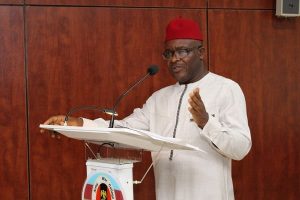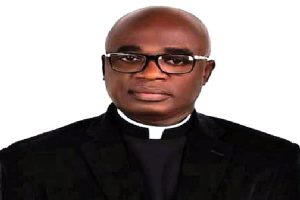
The Director-General of the National Automotive Design and Development Council, Mr. Oluwemimo Osanipin, has revealed that Nigeria will soon begin the production of plastic automotive components.
Speaking during a stakeholders’ engagement in Uyo, the Akwa Ibom State capital, on Wednesday, Osanipin said the council had identified certain vehicle components—particularly plastic parts made from petroleum by-products—where Nigeria holds a comparative cost advantage.
He stated that the council is prepared to promote the Federal Government’s “Nigeria First Policy,” adding that this has been a long-standing advocacy of the NADDC.
“We have been clamouring for this policy. This means we are going to patronise made-in-Nigeria goods, especially automobiles, because it is one of the sectors where the government spends a lot of money.
So, this policy is going to impact what we are doing now and help grow the automotive sector. We have identified components we can produce competitively at lower cost—such as plastic parts, which can be manufactured using petroleum by-products.
“A lot of things can be produced in Nigeria. We have identified them, and we are working with major assemblers and vehicle manufacturers,” Osanipin said.
Osanipin also disclosed that 12 Nigerian universities—two from each of the six geopolitical zones—have been selected to form a team tasked with designing and producing electric shuttle buses for university campuses.
We have launched an initiative involving twelve universities—two from each geopolitical zone. They are currently working on the design of what we call the University Shuttle Bus, which will be 100% electric.
“The buses will be designed in Nigeria, and most of the components will be sourced locally. Once the design is completed, we will reconvene with assemblers, auto manufacturers, and financiers such as the Bank of Industry and other financial institutions to begin production”, he added.
He called on stakeholders in the automotive industry to embrace regulatory efforts to ensure vehicle safety and environmental sustainability in Nigeria.
In his remarks, the National President of Automotive Dealers of Nigeria, Ajibola Adedoyin, highlighted the benefits of a proper regulatory framework, which he said include enhanced national security and increased government revenue.
He also urged the government to refine its policies to make vehicles more affordable and accessible.
“The nation stands to gain a lot. We believe it’s wrong for anyone to import a vehicle without going through a registered dealer, as this makes it difficult to trace the vehicle in case of any issue.
“Security-wise, this is very important because many crimes are committed using untraceable vehicles. In addition to boosting revenue and improving ease of operations for both the industry and government, proper regulation helps curb a significant percentage of security threats.
However, the government must fine-tune the policy to ensure that vehicles remain affordable and accessible to the average Nigerian”, Adedoyin said.





